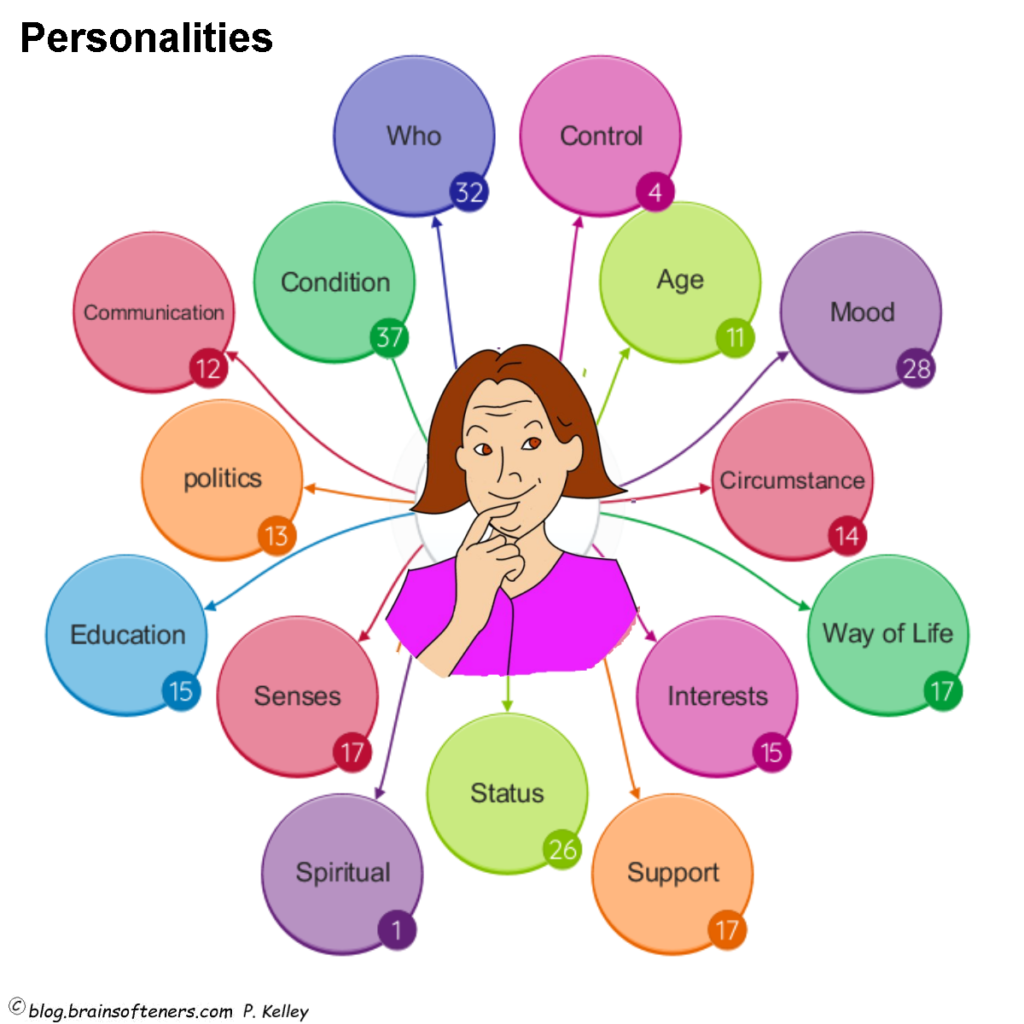 per·son·al·i·ty (/?p?rs?’nal?de/)
per·son·al·i·ty (/?p?rs?’nal?de/)
noun: personality
plural noun: personalities:
1. the combination of characteristics or qualities that form an individual’s distinctive character.
What is Personality?
What combinations of emotions, reactions and behaviors coalesce to determine our individual personality traits?
Is a personality static or an ever-changing face we present to others?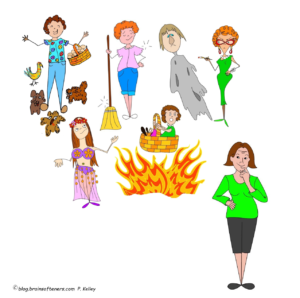
Is there such a thing as “a” personality?
Can a personality be changed?
What are Personality Quirks?
Is personality itself a quirk or is change in personality considered a quirk?
Who gets to determine what is a quirk?
Everyone has peculiar personality quirks because we have unique DNA, experiences, education skills, opportunities and abilities.
When does a personality quirk become a personality disorder?
In order to maintain civilized society people don’t think “alike” we think “around” each other within a generally accepted community or social behavior framework.
Adaptability is the nuance that provides the glue necessary to form the generic community personality. The more adaptable the personality the more successful an individual will be maneuvering within the community structure.
Unique personality traits can arise upon demand. An individuals general temperament or personality can change depending upon circumstances:
- An Emergency
- A Rival’s Sudden Good Fortune
- Upcoming Important Job Interview
What Aspects Affect Personality?
The memory capacity of the brain is around 2.5 million gigabytes of digital memory which leaves plenty of room for mischief.
Aspects that determine personality are comprised of multiple variables. These variables exist within the brains complex cellular and molecular organization of neural, or synaptic connections and are stored as clustered pods of memory.
Possible connections that contains factors which may affect personalities at any given time, situation or predicament:
Mood, 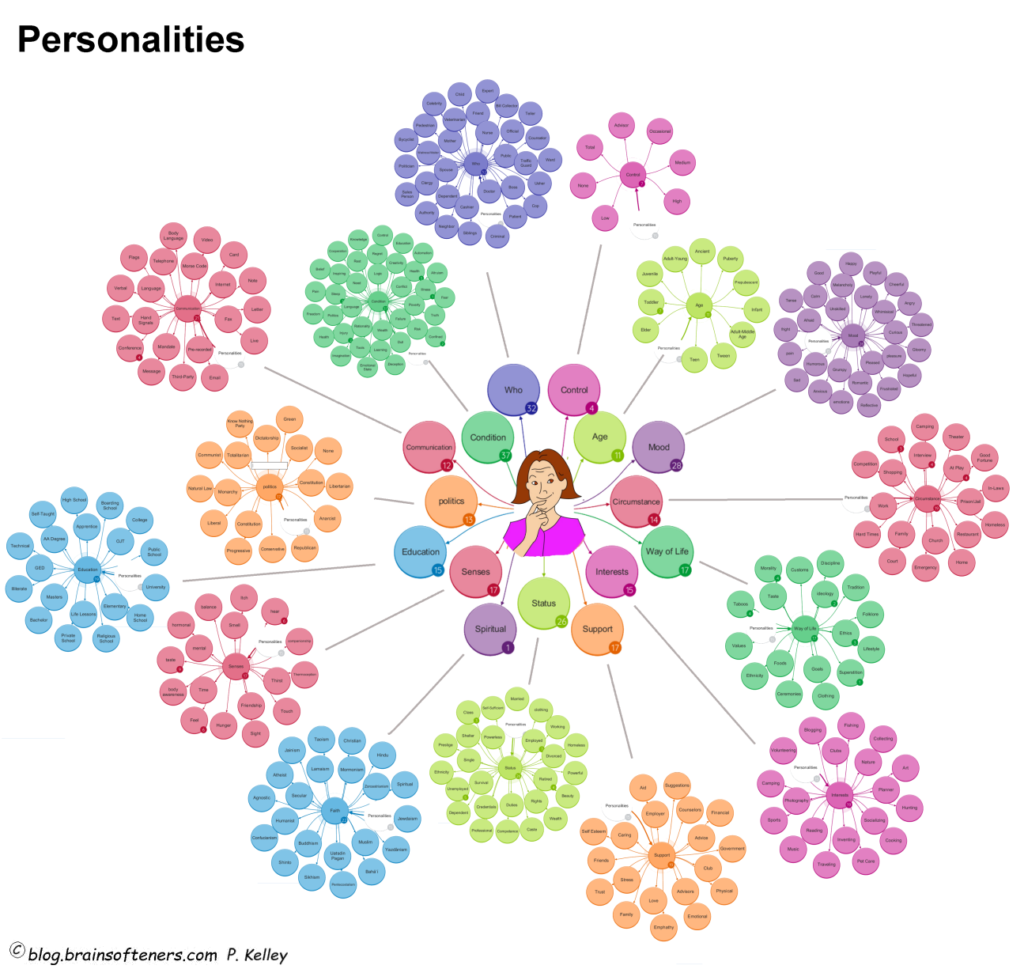
Age,
Conditions,
Support Structure,
Spiritual / Faith,
Interests,
Senses,
Control,
Way of Life,
Political View,
Circumstances,
Communication,
Status,
Education,
Who
Each synaptic connection which can affect personality also contains its own combination of elements which work together to conceptualize the personality.
Personalities, however similar may appear between individuals on the surface, are as unique as a snowflake, fingerprint, or strand of DNA. Each person has unique genetics, unique experiences, education, sensations and so on.
 Who You Are and Who You Interact With
Who You Are and Who You Interact With
Personality can depend upon with whom or what a person interacts.
For instance the purpose of an interaction between entities of can change personality:
- Child to Teacher
- Child to child
- Nurse to Patient
- Doctor to Nurse
- Mother to Father
- Sister to Brother
- Owner to Dog, Cat, Goldfish…
With 2.5 million gigabytes of digital memory to work with there is no end to possible personality combinations for an individual to adopt whether it’s through contact with people, animal, vegetable or mineral.
What level of control you have determined the amount of control a person holds in any situation may also affect personality.
- Advisory capacity
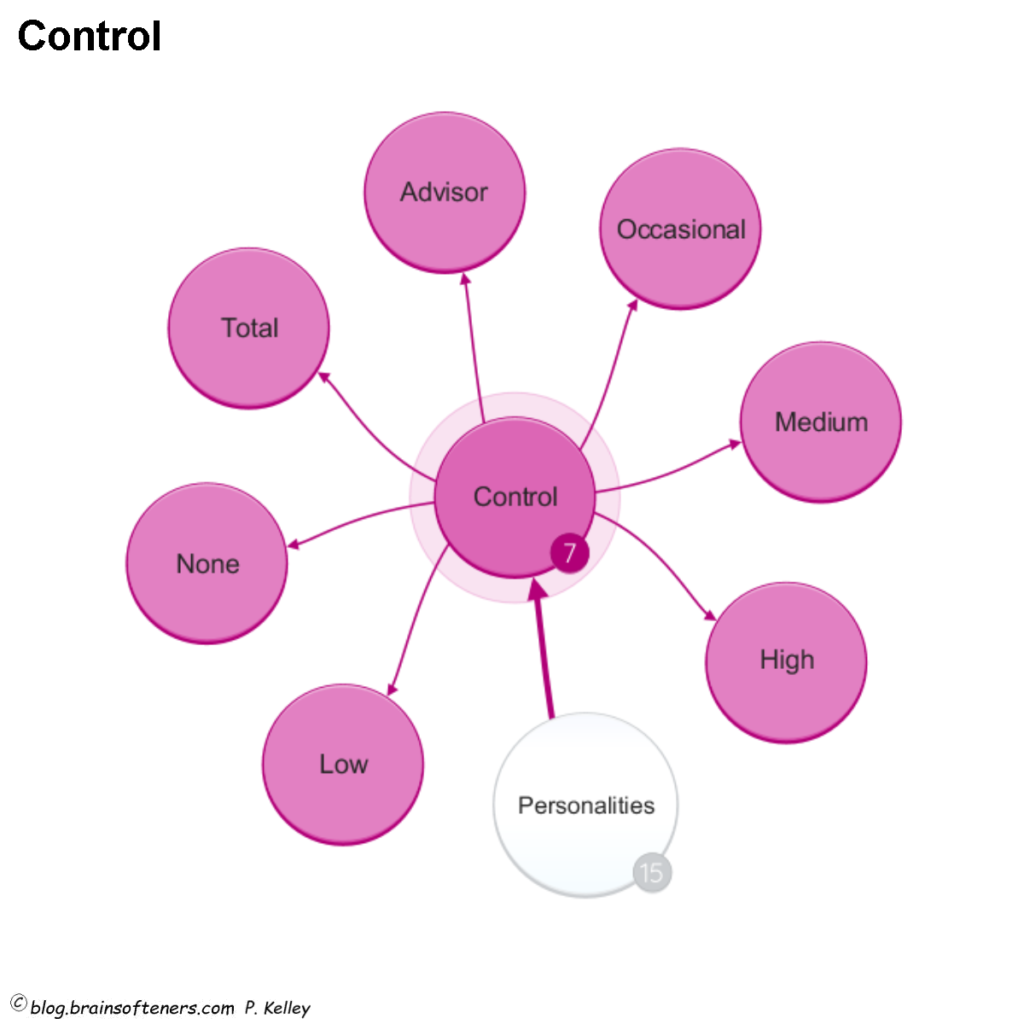
- Occasional Authority
- Medium control
- High control
- Low control
- No control
- Total control
Do you act differently when you are in charge as opposed to having no control whatsoever over a situation?
Your Age
Age plays a major role in personality development.
- Infant
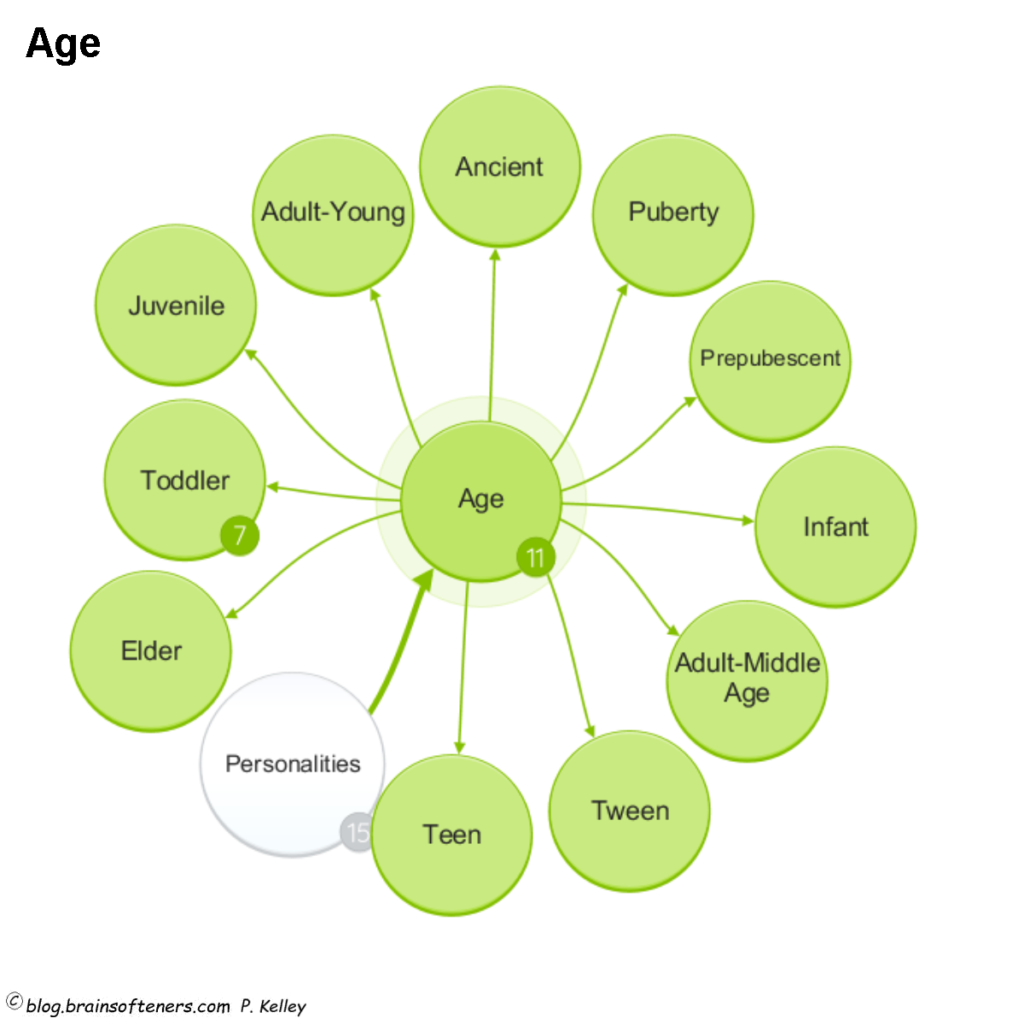
- Toddler
- Juvenile
- Young Adult
- Puberty
- Prepubescent
- Tween
- Teen
- Middle Age
- Elder
- Ancient
Has your personality changed with age?
Mood
- Mood is a major factor in how people react to situations and stimuli. Imagine receiving bad or good news while you are feeling any number of these moods:
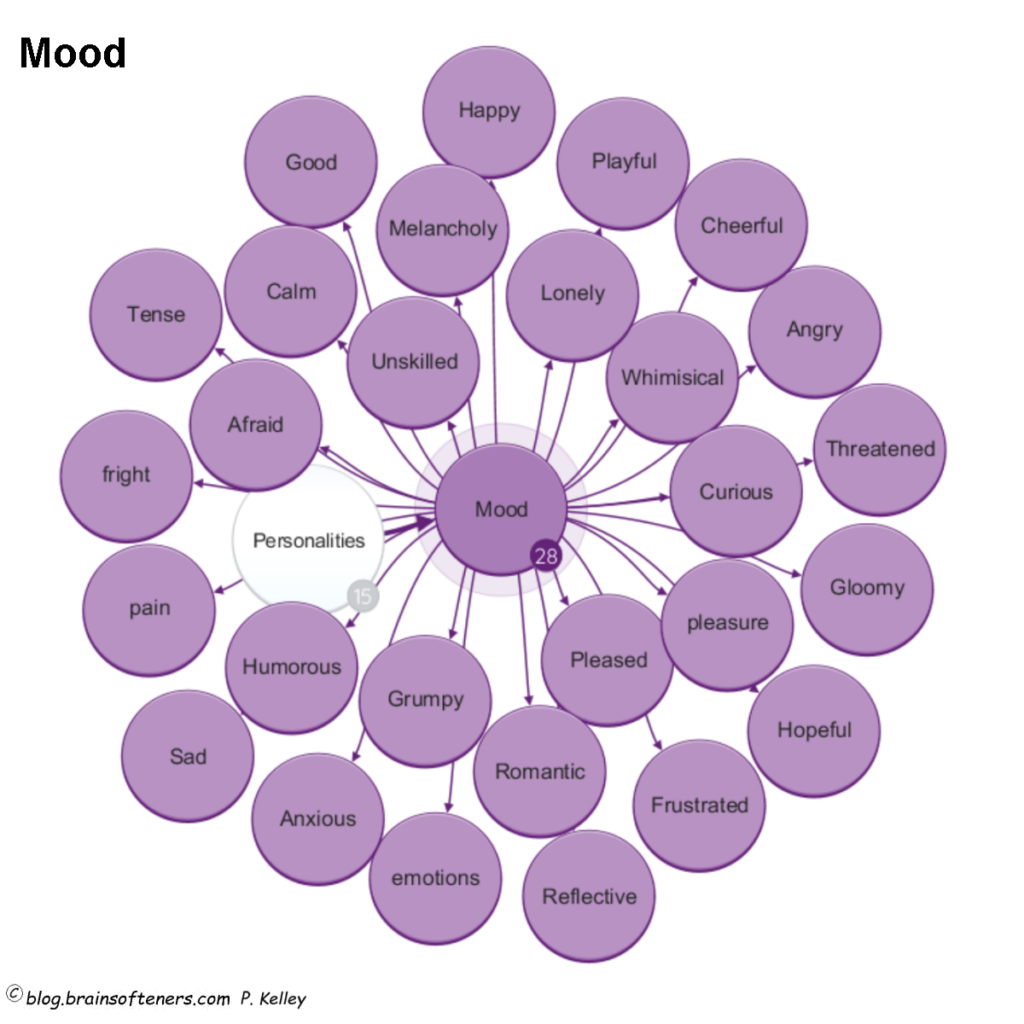
Happy, Playful, Cheerful, - Angry, Threatened,
Gloomy, Hopeful, Frustrated, - Reflective, Emotional, Anxious,
- Sad, Pain, Frightened, Tense,
- Good, Calm, Melancholy, Lonely,
- Whimsical, Curious,
- Pleasure, Romantic, Grumpy,
- Inadequate
Circumstance
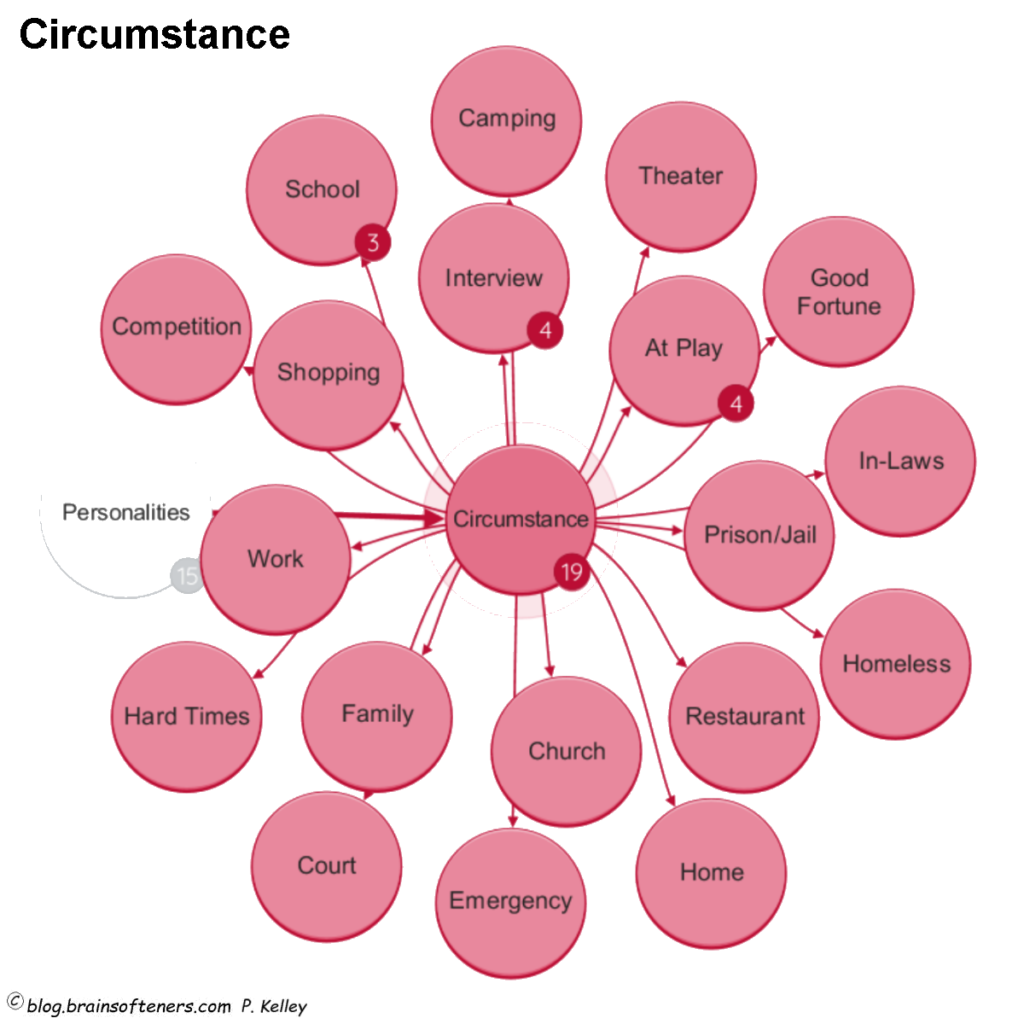 Where you are, how circumstance can affect personality displays.
Where you are, how circumstance can affect personality displays.
- School,
- Camping,
- Theater,
- A Play,
- Win the Lottery,
- In-Laws visit
- Prison or Jail
- Restaurant – Upper class
- Restaurant – Fast Food
- Church
- Mosque
- Synagogue
- Emergency
- Crisis
- Courtroom
- Family gathering
- Experiencing Hard Times
- At Work
- Shopping
- Competition or Contest
Way of Life
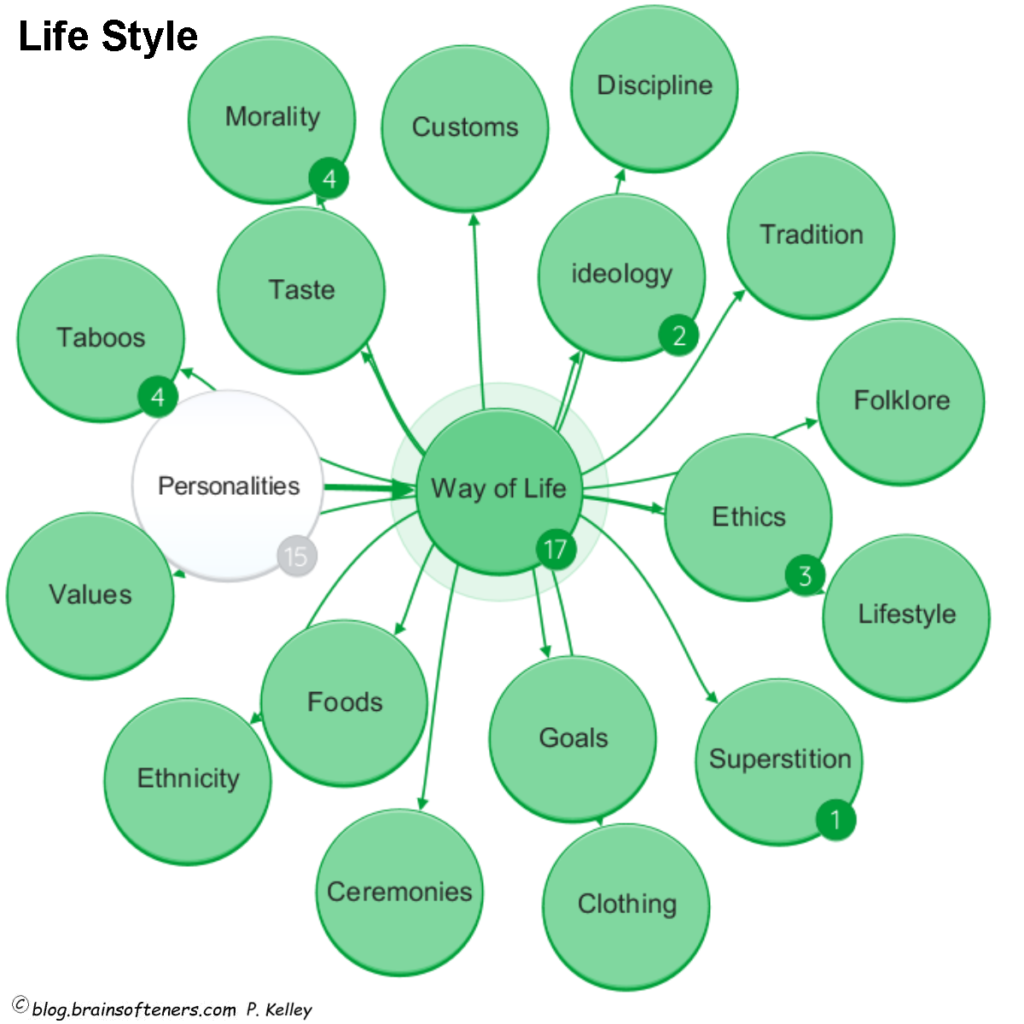 As with circumstance, where you stand in life affects your personality.
As with circumstance, where you stand in life affects your personality.
What customs and traditions have you experienced throughout life.
- Moral Code,
- Customs,
- Discipline,
- Ideology,
- Tradition,
- Folklore,
- Ethics,
- Lifestyle,
- Superstition
- Goals
- Clothing Style
- Ceremonies,
- Foods
- Ethnicity,
- Values,
- Taboos,
- Taste
Interests
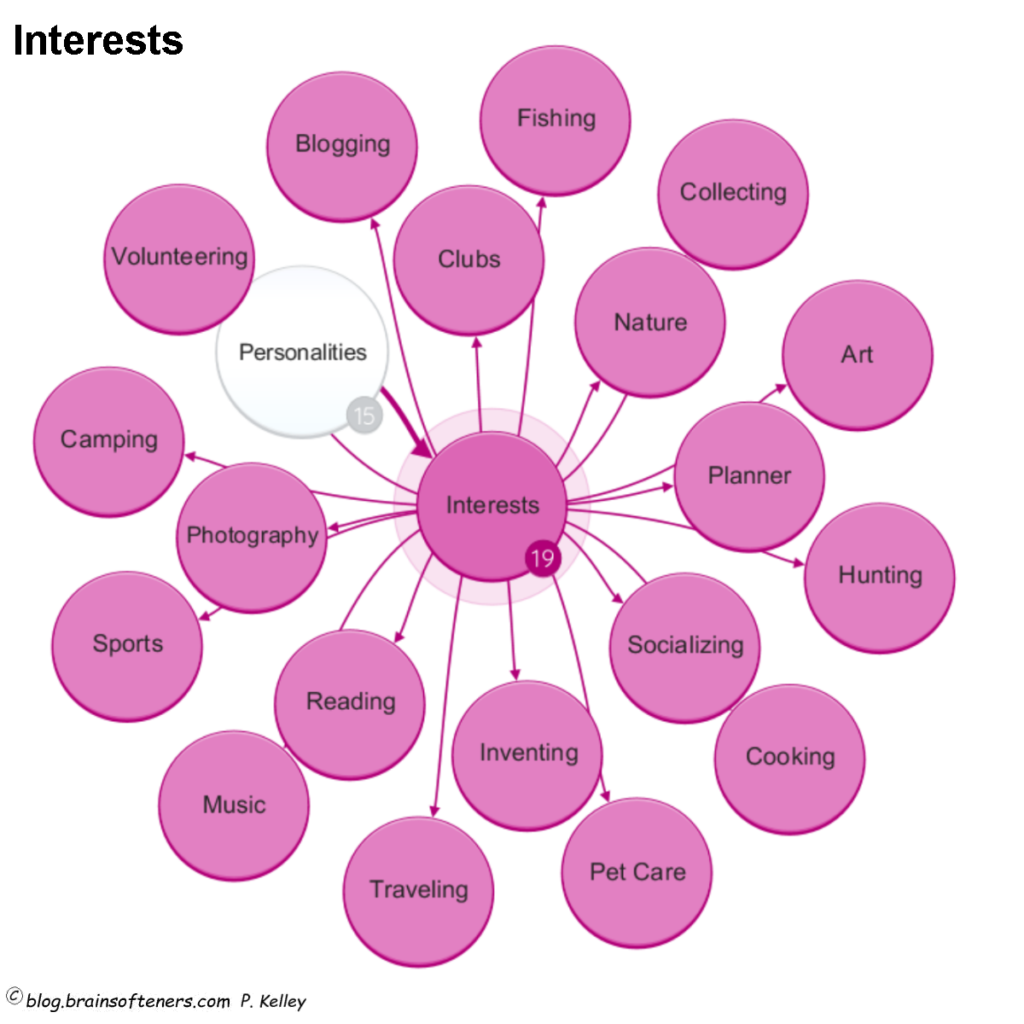 What interests you can alter your personality. Consider how you may behave when you are with others:
What interests you can alter your personality. Consider how you may behave when you are with others:
- Fishing
- Collecting
- Clubbing
- Nature Walks
- Art
- Planner
- Hunting
- Socializing
- Cooking
- Inventing
- Caring for Pets
- Reading
- Listening to Music
- Partaking in Sports
- Photography
- Camping
- Volunteering
- Blogging
Support structure or lack thereof
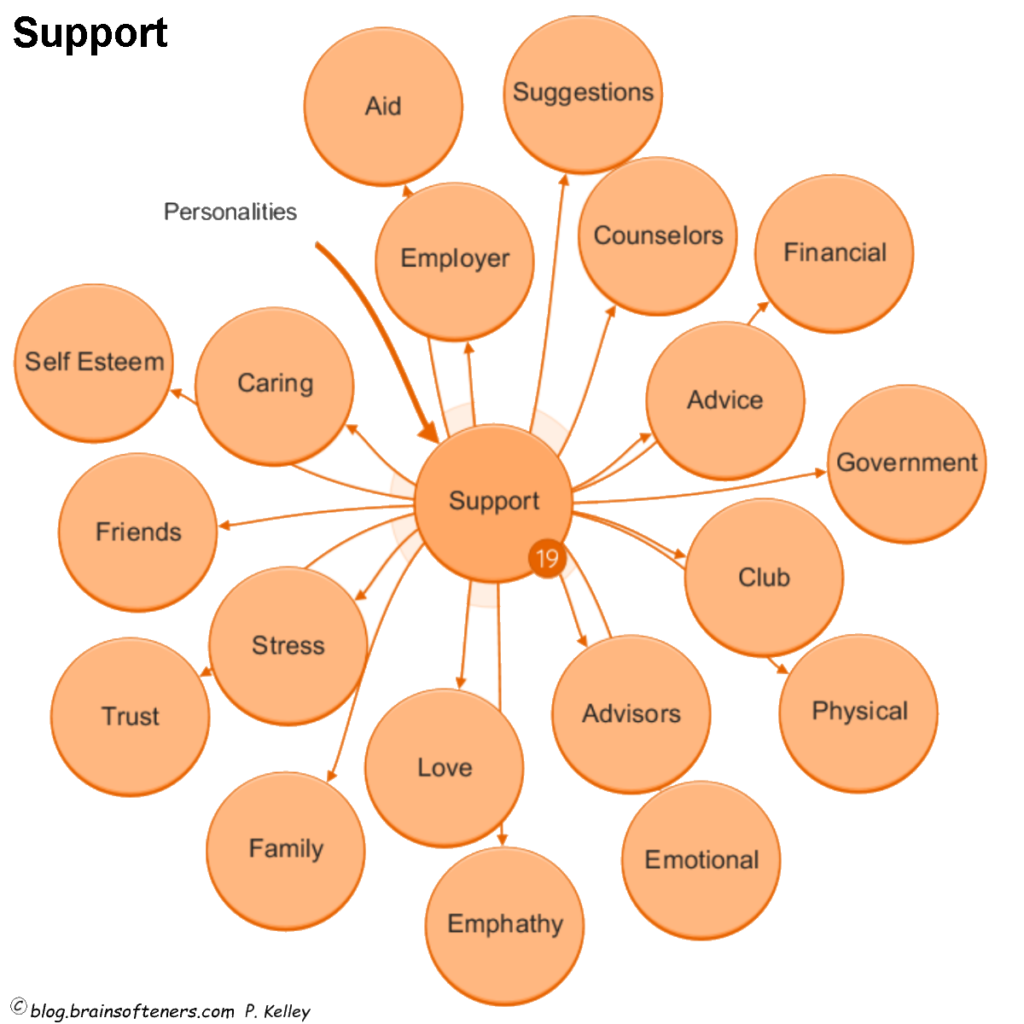 How could a support structure affect a personality. Let us count the ways:
How could a support structure affect a personality. Let us count the ways:
- Needing Aid
- Suggestions
- Employer
- Counselor
- Financial
- Advice
- Government
- Club
- Physical
- Emotional
- Love
- Stress
- Family
- Trust
- Stress
- Friends
- Self-Esteem
- Caring
Social Status / Self Esteem
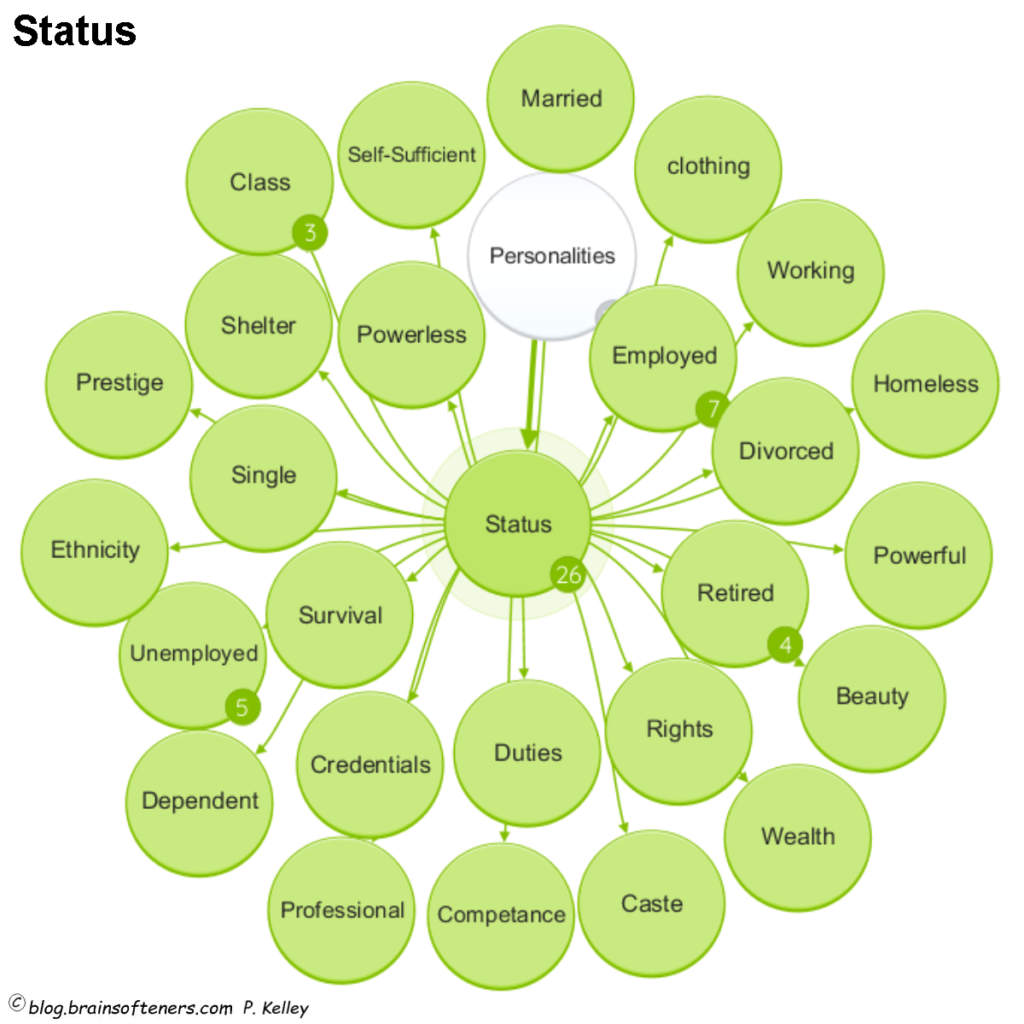 Social status plays a significant role in personality development.
Social status plays a significant role in personality development.
- Married, Clothing
- Employed Homeless
- Divorced
- Powerful
- Retired
- Beauty
- Rights
- Wealth
- Caste
- Duties
- Competence
- Professional
- Credentials
- Dependency
- Unemployed
- Survival
- Ethnicity
- Single
- Prestigious
- Shelter
- Powerless
- Class
Ideology: Spiritual or faith or lack thereof
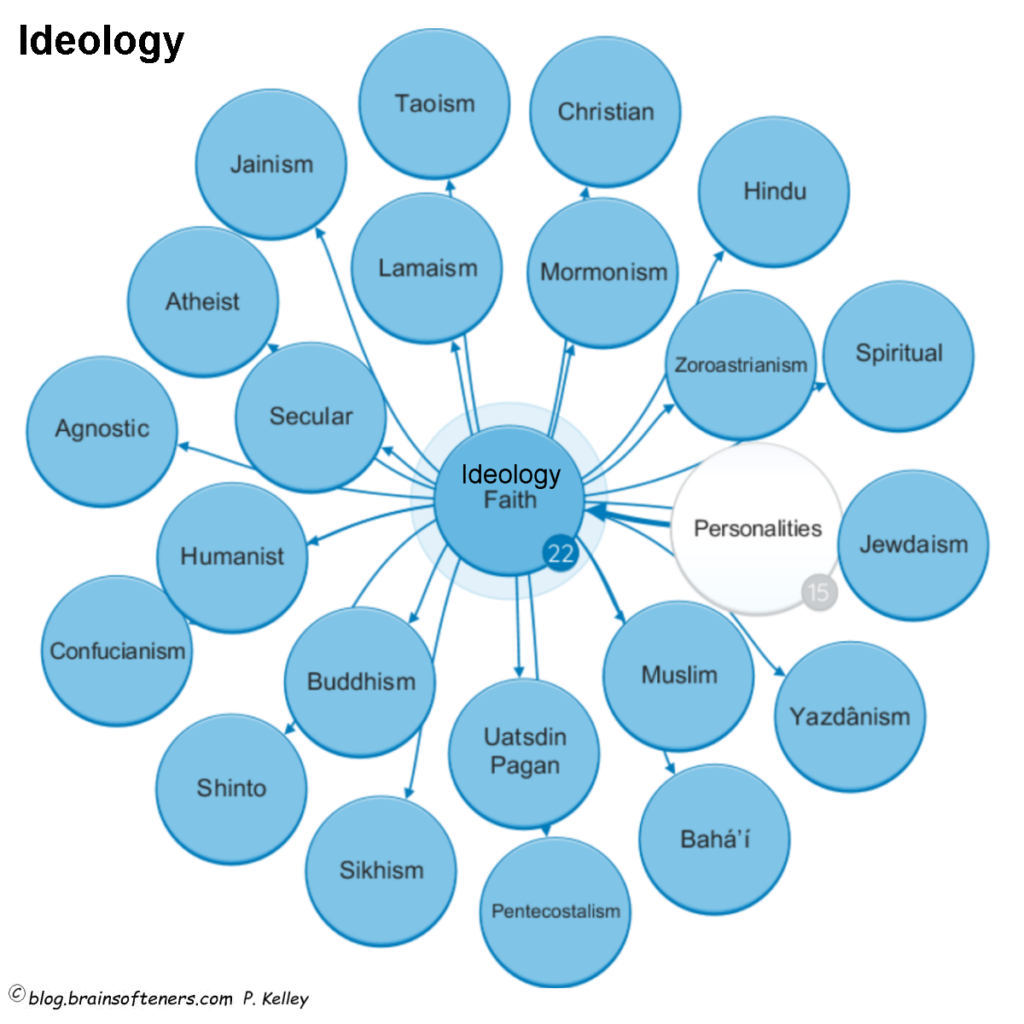 How your beliefs and family structure can affect personality. How does faith determine personality?
How your beliefs and family structure can affect personality. How does faith determine personality?
- Christian
- Taoism
- Janism
- Atheist
- Agnostic
- Secular
- Humanist
- Confucianism
- Buddhism
- Siknism
- Shinto
- Pentacostalism
- Baha’i
- Muslim
- Jewdaisn
- Zoastrianism
- Spiritual
- New Age
- Hindu
- Mormonism
- Amish
- Catholic
Senses 5 Senses Plus
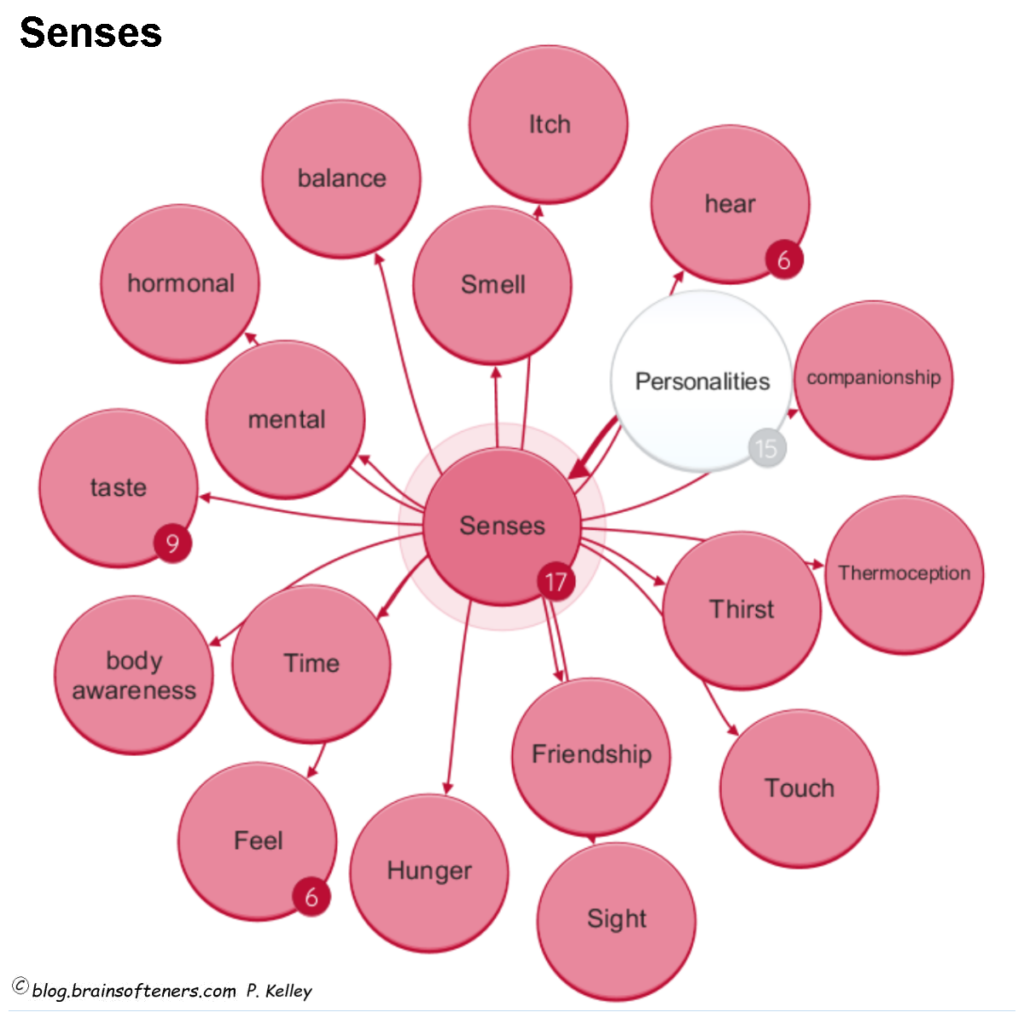 Could you imagine how your personality might be different based upon your senses or lack of one or more senses?
Could you imagine how your personality might be different based upon your senses or lack of one or more senses?
- Itch
- Smell
- Hearing
- Companionship
- Thermoreception
- Thirst
- Touch
- Friendship
- Sight
- Hunger
- Feel
- Time
- Body Awareness
- Taste
- Mental Health
- Hormonal
- Balance
- Scent
Education
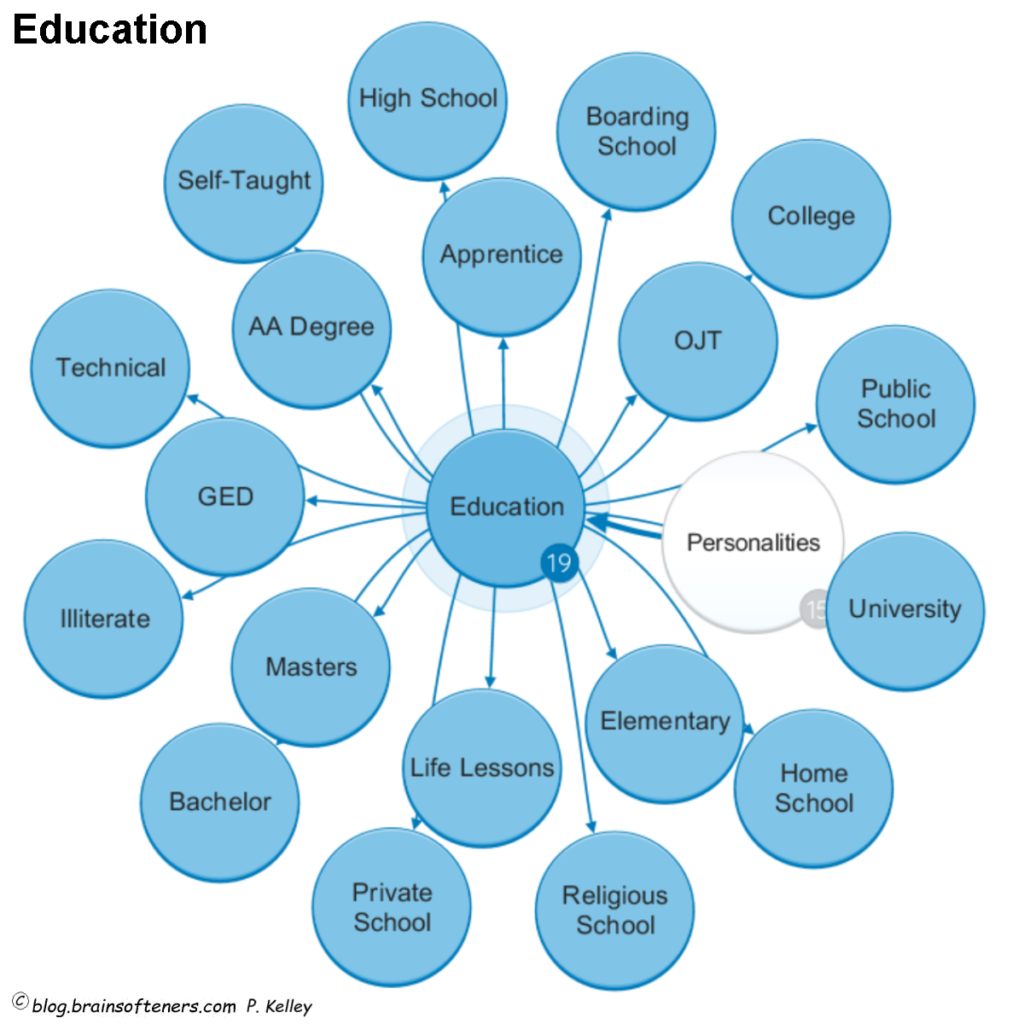 Education can affect personality
Education can affect personality
- High School
- Boarding School
- Apprenticeship
- College
- University
- On the Job Training
- Home School
- Elementary
- Religious School
- Life Lessons
- Private School
- Masters
- Bachelors
- Illiterate
- GED
- Technical School
- AA Degree
- Self-Taught
Political Lean and Belief/Faith
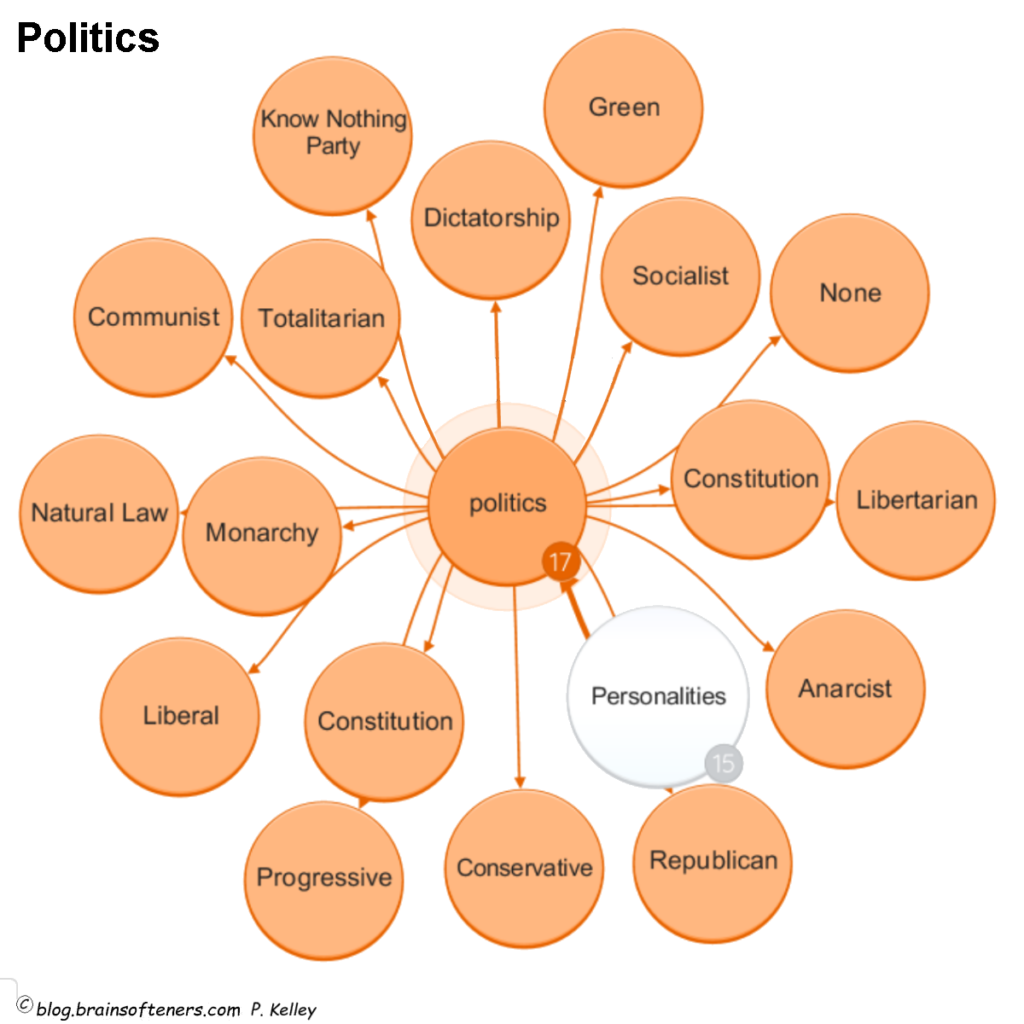 Where you fall on the political spectrum can affect your personality
Where you fall on the political spectrum can affect your personality
What’s your poison?
- Know Nothing Party
- Dictatorship
- Green Party
- Socialist
- Democratic Socialist
- None
- Constitutionalist
- Libertarian
- Anarchist
- Republican
- Democratic
- Conservative
- Progressive
- Liberal
- Monarchy
- Natural Law
- Communist
- Totalitarian
Communication Style
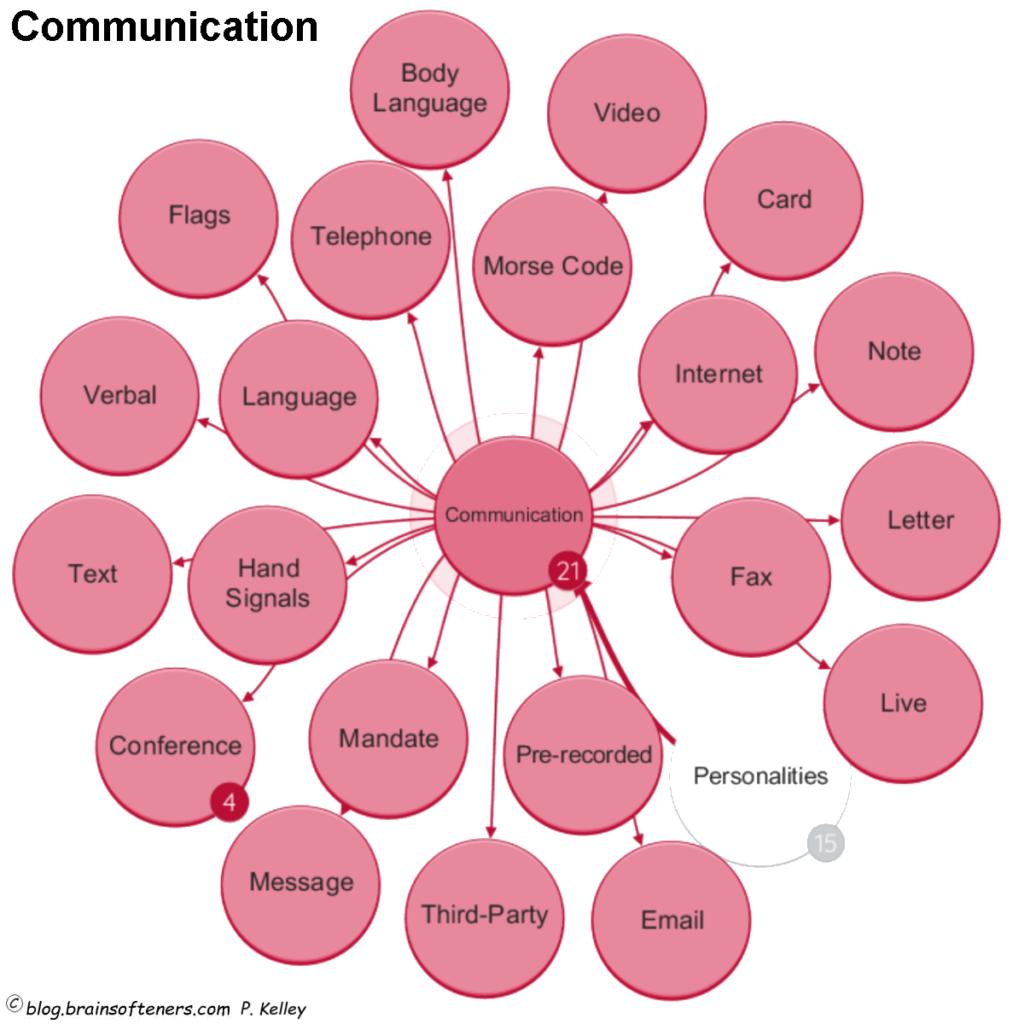 Anyone who has been misunderstood via e-mail knows the communication style can affect personality, both on the sending and receiving ends. And the reason why emodi’s were invented.
Anyone who has been misunderstood via e-mail knows the communication style can affect personality, both on the sending and receiving ends. And the reason why emodi’s were invented.
- Body language
- Video/Zoom
- Post Card
- Internet
- Note
- Letter
- Fax
- Live in person
- Pre-recorded
- Third Party
- Mandate
- Message
- Conference
- Hand Signals
- Smoke Signals
- SOS
- Text
- Language Barrier
- Flag signals
- Telephone
- Eye Contact
Physical Condition Self, Environment
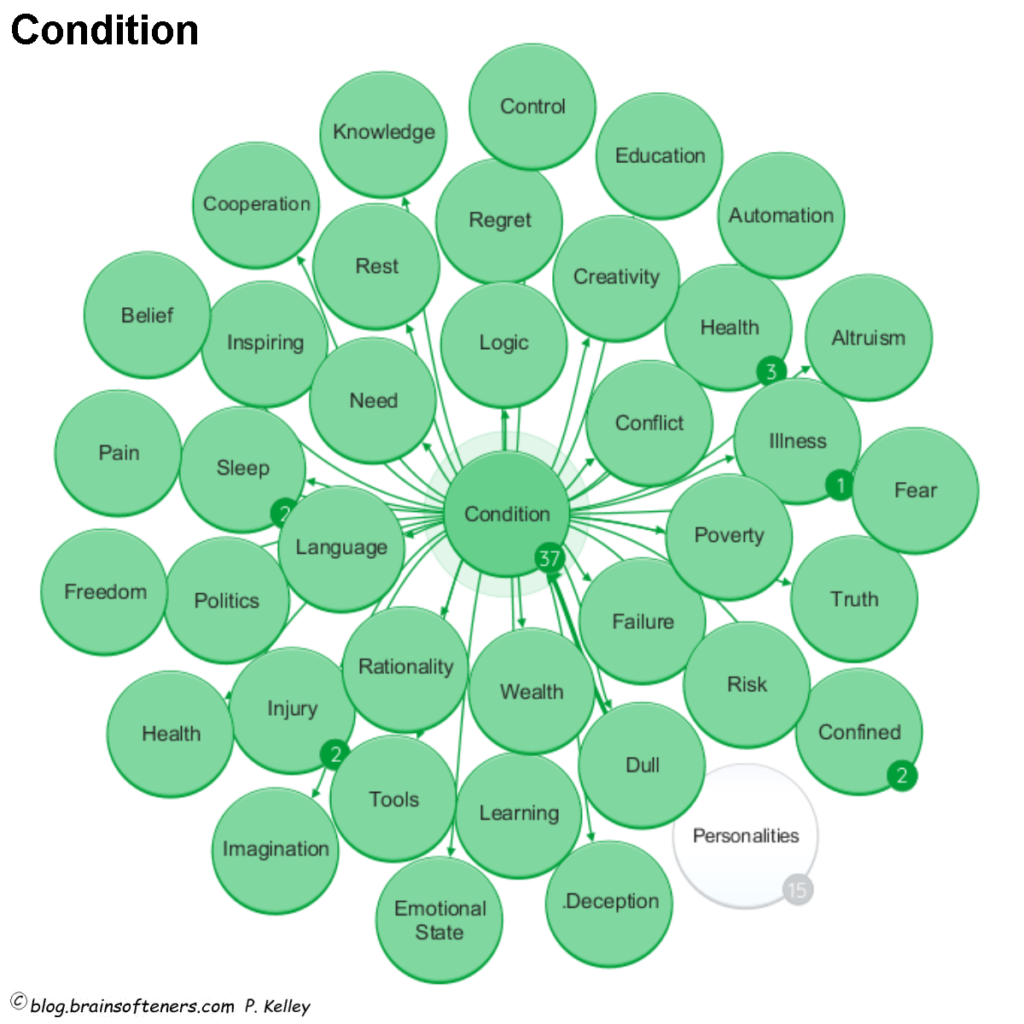 If you’ve ever had a really bad day followed by another day of apologies for the previous bad day, you know how physical condition of the self within your environment can affect personalities.
If you’ve ever had a really bad day followed by another day of apologies for the previous bad day, you know how physical condition of the self within your environment can affect personalities.
Are you in a condition of:
- Need
- Control
- Knowledge
- Regret
- Automation
- Creativity
- Altruism
- Conflict
- Illness
- Fear
- Poverty
- Failure
- At Risk
- Duller than dirt
- Wealthy
- Rational
- Proper Tools
- Injury
- Pain
- Adequate Sleep
- Cooperation
- Rest
Combined, these qualities (and more) create a unique combination that is an individuals overall personality.
Click on map image to view large version
